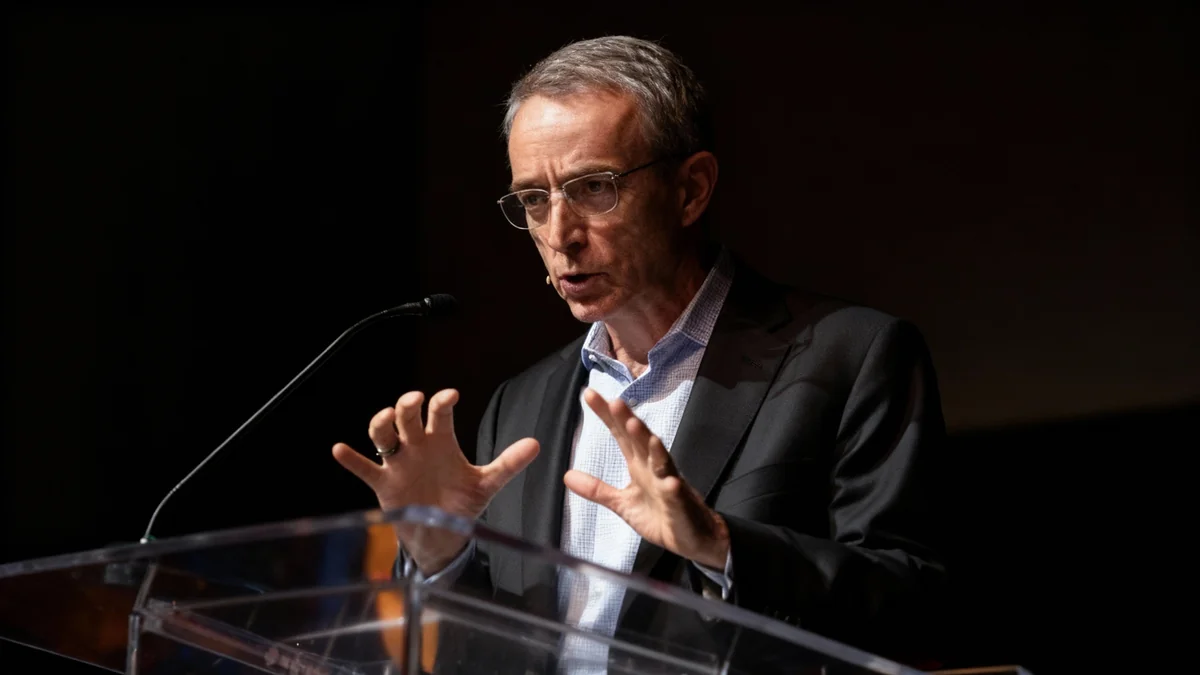Patrick Gelsinger, the former chief executive of Intel, has taken on a new role as executive chairman at Gloo, a technology company dedicated to serving what it calls the “faith ecosystem.” With a reported $110 million in funding, the company is developing artificial intelligence tools tailored for churches and ministry organizations.
Gelsinger has publicly stated his personal mission is to develop technology that not only improves human life but also aims to “hasten the coming of Christ’s return.” This move signals a growing and more visible integration of specific religious values within the technology sector, particularly in the field of AI.
Key Takeaways
- Patrick Gelsinger, previously CEO of Intel, is now executive chairman at Gloo, a tech company building AI for churches.
- Gloo has raised $110 million to develop its platform, which includes chatbots and pastoral support tools.
- The initiative is part of a broader trend of Christian-inflected technology culture becoming more prominent in Silicon Valley.
- Gelsinger is engaging with political leaders in Washington D.C. to promote the use of faith-aligned AI.
A New Mission in Silicon Valley
After his departure from Intel, Patrick Gelsinger is now steering Gloo, a company that provides a suite of digital tools designed for religious organizations. The platform functions similarly to a customer relationship management (CRM) system like Salesforce but is specifically adapted for pastoral work, ministry support, and community engagement.
Gloo reports that it currently serves over 140,000 leaders within faith, ministry, and nonprofit sectors. While this user base is modest compared to mainstream AI platforms like ChatGPT, it represents a significant and dedicated niche market.
Gelsinger, a born-again Christian, has described Silicon Valley as his “mission field.” His work with Gloo is part of a larger effort to embed Christian principles into the fabric of the tech industry. This movement is gaining visibility, with other prominent tech figures also openly discussing their faith's influence on their work.
The 'Gutenberg Moment' for AI
Gelsinger has compared the current development of artificial intelligence to the invention of the printing press during the Reformation. He refers to it as “another Gutenberg moment,” suggesting that AI holds the potential to catalyze a societal shift of similar magnitude. He argues that just as the church embraced the printing press to spread its message, it should now embrace and shape AI to express its values in the modern era.
Building a Faith-Tech Ecosystem
Gloo's strategy extends beyond simply developing software. The company is actively fostering a community around Christian technology innovation. Recently, it co-hosted a seminar and a subsequent three-day hackathon at Colorado Christian University, a conservative institution.
The event drew over 600 participants who competed for more than $250,000 in prize money. This represents a substantial increase in attendance from the previous year, indicating growing interest in the faith-tech space.
During the hackathon, participants were given early access to Gloo's new large language model (LLM), which is still in a pre-beta stage. The company encouraged attendees to test the system and provide feedback. According to a company spokesperson, this was an intentional part of the development process to identify and address vulnerabilities before a public launch.
“We’re not trying to take a theological position: we’re building a technology platform, and then giving enough customization capability that the Lutherans can be good with it, the Episcopalians can be good with it, the Catholics can be good with it,” Gelsinger explained in an interview.
Influence from Silicon Valley to Washington
Gelsinger's advocacy for a Christian-aligned AI is not confined to the tech world. He has been presenting Gloo's work to legal advocacy groups and congressional leaders in Washington D.C. While he has not named the specific politicians or institutions, he mentioned that some lawmakers have expressed interest in using Gloo's products within their own church communities.
The company and its leadership often appear in conservative political circles. Gelsinger recently spoke at Liberty University’s CEO Summit, an event that also featured speakers such as former UK Prime Minister Liz Truss and former National Security Advisor Michael Flynn. The company’s co-hosted seminar included panelists from the Heritage Foundation, the conservative think tank behind Project 2025.
Measuring AI's Impact on 'Flourishing'
Gloo has launched an initiative called Flourishing AI, which aims to evaluate how different large language models affect human well-being. Using a framework adapted from a Harvard research program, the system scores models on seven variables, including a metric for “Faith.” According to Gloo's initial findings, leading models like GPT-4.1 perform well on financial questions (scoring 81 out of 100) but underperform significantly in supporting a user's spiritual growth (scoring 35 out of 100).
A Broad-Tent Approach
Despite its clear Christian focus and ties to conservative circles, Gloo maintains that its platform is designed to be ecumenical. Gelsinger insists the goal is to provide a customizable technology that various denominations can adapt to their specific theological beliefs.
The company states it does not prohibit organizations from other faiths, such as Muslim groups, from using its technology. The platform is also intended for use by non-denominational organizations like Alcoholics Anonymous.
This approach reflects a pragmatic strategy to build a broad user base while advancing a core mission. As Gelsinger put it, the aim is to create a “broad tent here of faith and flourishing,” allowing different groups to shape the technology to their needs.





